"I feel honoured to have this opportunity and proud to be making a difference to the lives of so many equines."
Posted on 15/11/2024
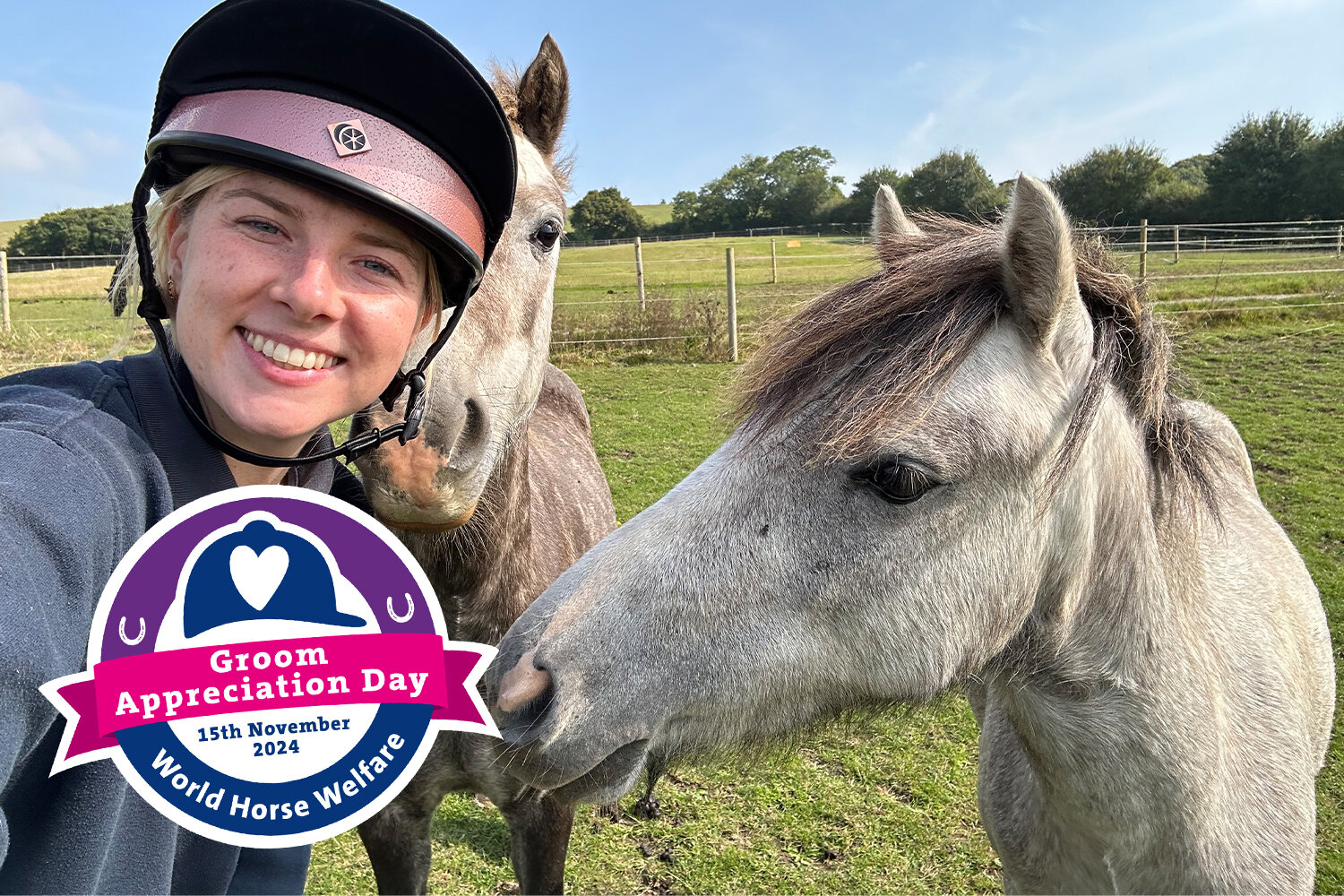
Today we celebrate our inaugural World Horse Welfare Groom Appreciation Day!
Following our Stamp Out Suffering appeal, we have received an overwhelming amount of wonderful messages from our supporters to our grooms, thanking them for their hard work and dedication to the horses in our care.
We would like to join our supporters in thanking all of our wonderful grooms for the incredibly special and difficult work they do – particularly as we approach winter when they work even harder to care for our horses in the dark and cold. We couldn’t rescue and rehabilitate abused and neglected horses without their passionate dedication and commitment to the cause.
Across our four rescue and rehoming centres, our fabulous team of 46 grooms changes the lives of horses, ponies, donkeys, mules and foals every single day. On Groom Appreciation Day we put them firmly in the spotlight to celebrate their invaluable and inspiring work.
Our diverse team of highly skilled grooms have joined the World Horse Welfare family from a broad range of backgrounds within the industry, some coming from high-level competition and racing yards, and some with experience in other rescue and rehoming organisations, veterinary hospitals, and riding schools.
Our grooms work methodically, often having to deal with some very challenging cases which they approach with compassion and patience working closely with vets, farriers and physiotherapists to implement treatment plans, administer medication, provide round-the-clock care, and retrain horses using science-based, welfare-friendly methods. As a charity, we take great pride in being realistic, compassionate and forward-thinking and our team shares these values.
Work in rescue and rehabilitation is often tough and emotionally draining, and each and every one of our grooms has spent countless hours nursing a sick animal that might not have recovered, and yet they continue their work with dignity and courage. They work outside in all weathers, contending with endless amounts of mud with professionalism and humour.
They are our often-unsung heroes, literally changing horses’ lives for the better every day.
We caught up with Nicole, a Rehabilitation Groom at our Glenda Spooner Farm Rescue and Rehoming Centre, to find out more about what life as a groom is really like here at World Horse Welfare.
Please tell us a bit about yourself…
I’m Nicole O’Malley and I am a Rehabilitation Groom here at Glenda Spooner Farm.
How did horses first come into your life?
With a horse-obsessed mum, I think it was a given that I was going to become equally obsessed (if not more so)! I loved grooming horses and ponies of all shapes and sizes and working at my local riding school before rehoming International League for the Protection of Horses Bracken and World Horse Welfare Sharney.
I started my professional journey with World Horse Welfare aged 15 when I carried out my schoolwork experience both in Head Office and on the yard at Hall Farm, Norfolk. Since then, I have worked at Belwade Farm, Scotland, where I found my love for Highland ponies and at Glenda Spooner Farm, Somerset, where I work now (and spend time with my Highlands after work)!
Can you tell us a bit about life as groom at Glenda Spooner Farm? Every day must be very different! There must be moments of sheer joy, utter heartbreak and everything in between.
Each day at Glenda Spooner Farm is varied. We start the day by dividing the team up to muck out the crew yards, poo pick the paddocks, check and feed the horses that live out, and bring in those that are going to be handled or worked that day. After break, we handle our ponies as per their current rehabilitation programme and carry out any essential farm maintenance, such as ragworting, making hay nets or collecting forage for enrichment. We all come together prior to lunch to tidy up and then after lunch get another session to handle our ponies. At the end of the day, we finish off by getting the indoor ponies ready for the night and hay the ponies who live out.
This is what the average day looks like but on a Tuesday, things are a little different! Our team of specialists are present on the yard to ensure that the health and welfare of our equines is paramount. Thanks to our veterinarian, farrier and physiotherapist, we are able to carry out: arrival assessments of new equines that are in isolation, passport applications, vaccinations, x-rays on areas of concern, routine dentistry and farriery, castrations in accordance with our no breeding policy, physiotherapy for horses who may be struggling with building and/or maintaining muscle strength, pre-web checks to ensure that our horses are being rehomed appropriately for their capabilities (similar to a vetting that you would arrange if you were buying/selling a horse) and leaving checks for horses to go off to their new loving homes.
When you get to work what is the first thing you do?
Every morning at Glenda Spooner Farm starts with a daily briefing where we discuss as a team the structure for the day and any specific rehabilitation requirements for our equines.
When you finish work, what is the last thing you do?
Debrief and de-kit after a long day of being active.
At the moment which horses are you looking after and what are their stories?
Ang, a 9-year-old Welsh pony who came to Glenda Spooner Farm as part of a feral group when she was a youngster. Ang has recently returned from loan and is currently under assessment by the vet and recovering from treatment of an infected lymph node.
Anushka is an 8-year-old cob who was transferred from one of our other farms and is receiving remedial farriery for previous laminitis and dentistry.
Bella, a 9-year-old cob has returned from loan and is undergoing a lameness assessment by the vet.
Blue is a 19-year-old Arab signed over to our charity through our Help for Horse Owners support scheme. She is currently learning about leading, separating from her un-weaned mature daughter, stabling and feet picking out.
Cortina, a 7-year-old cob signed over following a prosecution case. Transferred from one of our others farms she is on a weight loss programme, working with a view to be rehomed as a ride/drive prospect.
Devon is a 13-year-old native pony and is part of a long-term prosecution and was recently signed over into our care after 5 years. She is now ready for rehoming.
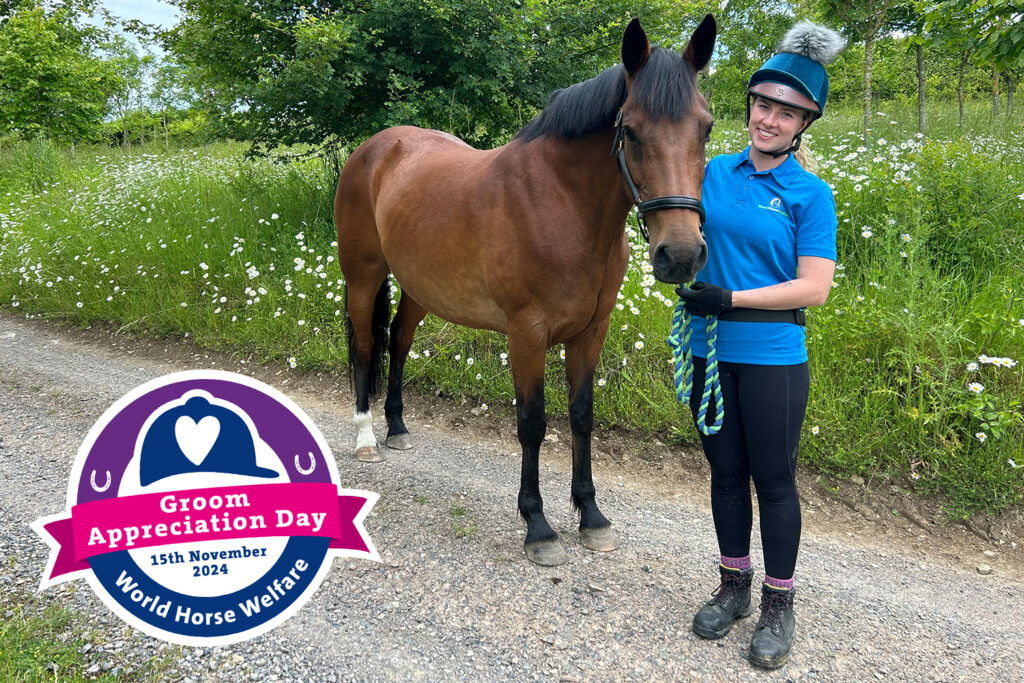
How does it feel to be able to make a difference to the lives of vulnerable horses every day?
I feel honoured to have this opportunity and proud to be making a difference to the lives of so many equines.
Can you tell us some interesting things we might not know about a World Horse Welfare groom?
We average around 25-30,000 steps a day and at the moment each groom is responsible for the rehabilitation of 7 dedicated horses this can be in the form of handling feral ponies, teaching youngsters about leading and stabling, carrying out travel practice with our companions ready for them to go to their new home, bringing ponies in to work and using physiotherapy techniques as instructed by our team physio.
What is the most rewarding thing about being a groom?
Seeing our ponies come out of their shell with rehomers and receiving photos and videos of them in the loving homes that they so truly deserve.
What is your most challenging day-to-day experience as a groom?
Mud… mud… more mud. Time constraints also make our job tricky because there just aren’t enough hours in the day, and we want our ponies to feel as loved as possible, but it just isn’t the same as a one-to-one home.
As we head into winter, what are your top tips for caring for horses in these colder, wetter months?
Rug appropriately based on your horse’s individual needs rather than what you assume they might need – just because you’re wearing a jacket, it doesn’t mean they necessarily need to.
Don’t put pressure on yourself or feel like a bad owner if you aren’t able to work your horses as much over winter – your horse’s welfare comes first and with the dark hours, you can only do your best.
Where possible, soak your horse’s hay with warm water to maintain their hydration on the colder days/nights.
Can you sum up what it’s like to be a groom in three words?
Challenging, rewarding and therapeutic.
Without our grooms, we wouldn’t be able to rescue more than 300 horses a year. If you would like to join the hundreds of supporters who have already sent a message of support to our grooms, you can email us via grooms@worldhorsewelfare.org
If you have enjoyed reading Nicole’s blog and would like to hear about what life as a groom is like at our other farms, please click the links below to find out more.
Emily, Yard Supervisor at Penny Farm
Abi, Senior Groom at Belwade Farm
Topics
Related Blog Posts
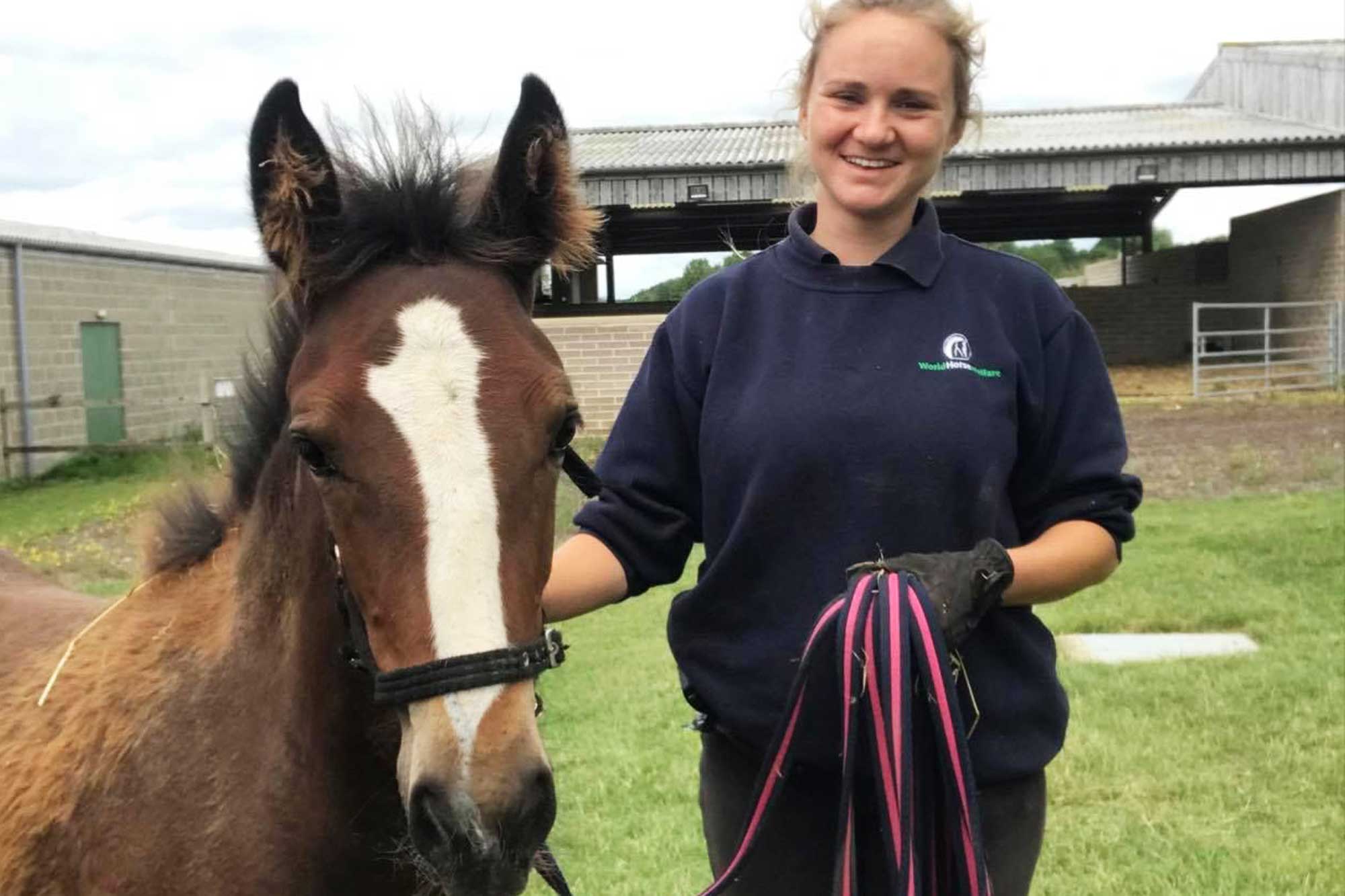
Buena’s story – how our foals are cared for from birth to rehoming
Senior Groom Steph introduces lovely filly Buena and explains how the team care for foals from birth right through to finding them a loving home for youngster handling.
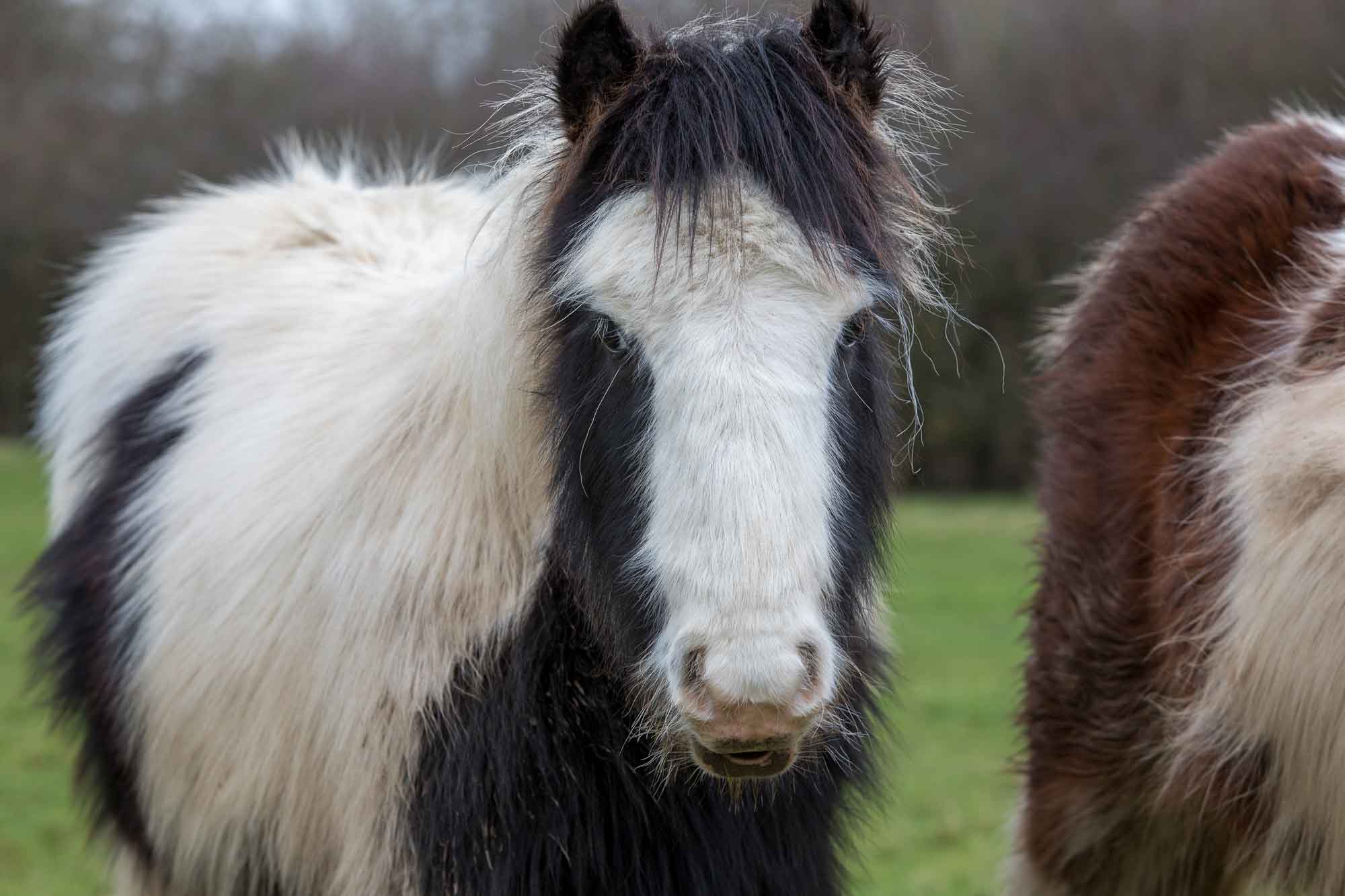
Behind the scenes: the first few months as a World Horse Field Officer
Find out what really goes on behind the scenes as a World Horse Welfare Field Officer.
Recommended News Articles
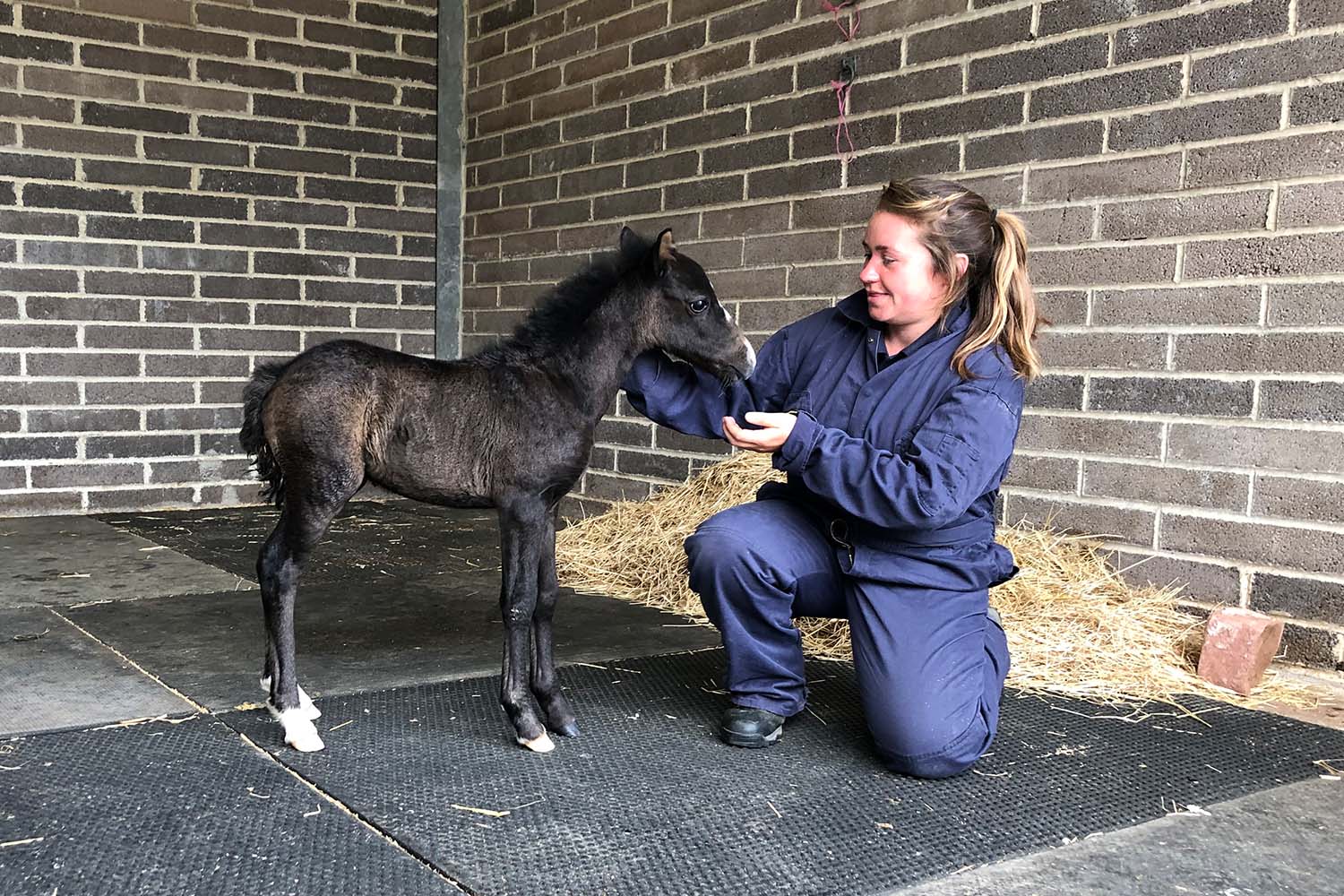
Abandoned foal to video star: Duke’s life has taken a happy turn.
A little dappled grey pony with a big personality has begun his new life with popular vlogger This Esme in style.

Equine experts at UN event highlight importance of working animals for a sustainable future for all
By bringing together a group of experts from around the world, this webinar explores the multitude of positive benefits of working animals.

Technology triumphs to track down isolated ponies
Our latest film shows Field Officer Rachel Andrews taking on some of Britain’s least hospitable terrain to check on a remote herd of ponies.
Enjoy reading stories like this?
Join over 55,000 other horse lovers and sign up for our email newsletter

Join over 55,000 other horse lovers and sign up for our email newsletter
Sign me up now